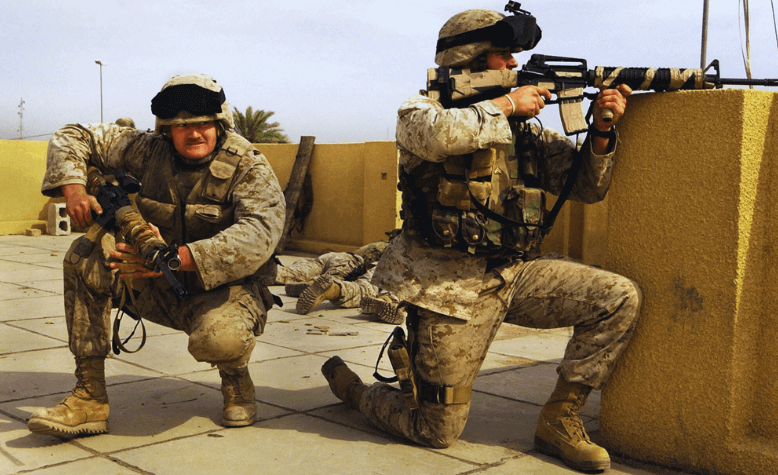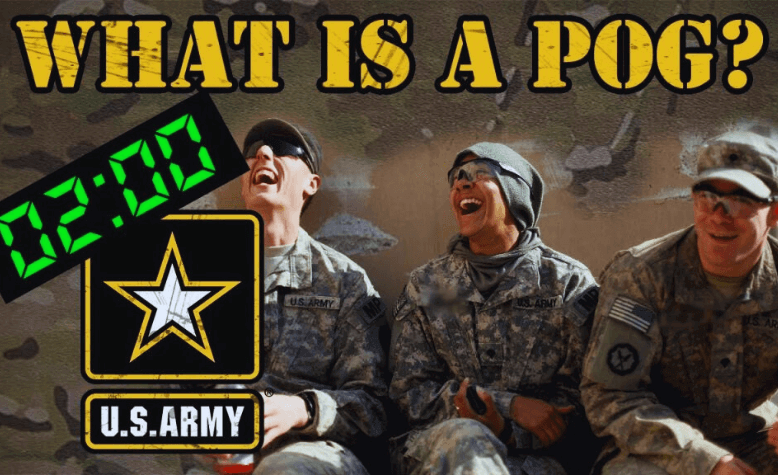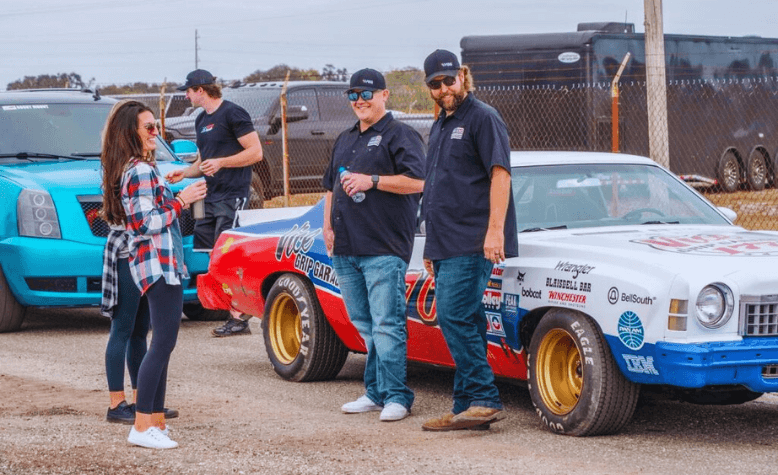Understanding the Meaning of POG in the Military

Are you curious about the term “POG” and its significance in the military? Well, look no further because this article aims to provide you with a clear understanding of what it really means. Whether you’re a military enthusiast or simply someone looking to expand their knowledge, we’ll delve into the origins and usage of this intriguing term.
So buckle up, because by the end of this article, you’ll be able to confidently decipher the meaning of POG in the military.
The Origin of the Term POG
The term POG has become a popular slang term in the military, particularly in the United States. While its origins are not precisely known, it is believed to have emerged in the late 20th century and has since evolved into a widely used term within military circles. It’s fascinating to observe how words and abbreviations can develop over time and take on new meanings.
An Acronym for ‘Person Other than Grunt’
POG is commonly understood to be an acronym for “Person Other than Grunt.” The term “grunt” refers to infantrymen or front-line combat soldiers. POGs, on the other hand, encompass a wide range of military personnel who do not serve directly on the front lines. Instead, they fulfill various support roles that are essential to the functioning of the military. This acronym, while straightforward, encapsulates the core distinction between infantry roles and non-combat support roles within the military.
Usage of the Term POG in the Military
The term POG is prevalent in military culture, with both positive and negative connotations associated with it. Within the military, it is often used as a convenient way to categorize individuals who are not directly involved in combat operations. It serves as a shorthand way for service members to refer to their non-combat colleagues and recognize the different roles and responsibilities each individual has within the military structure.
The Role of POGs in the Military
POGs perform a diverse range of duties within the military, each essential to the overall functioning and success of military operations. From administrative and logistical tasks to technical and medical support, POGs are responsible for ensuring that the military can carry out its missions effectively and efficiently. Without the contributions of POGs, the military would struggle to function at its full capacity.
Supporting Combat Operations
While POGs may not directly participate in combat operations, their support is crucial to the success of those on the front lines. Through their various roles, POGs ensure that combat units have the necessary supplies, equipment, and resources to carry out their missions. From providing medical assistance to coordinating transportation and logistics, POGs enable combat soldiers to focus on their core responsibilities without worrying about essential support functions.
Behind-the-Scenes Work
POGs often work in the background, performing tasks that may not be as visible but are vital to military operations. This can include roles such as intelligence analysts, communication specialists, and maintenance personnel. These individuals contribute to the overall success of the military by providing critical information, ensuring effective communication, and maintaining equipment and infrastructure. Their work greatly enhances the capabilities and readiness of combat forces.
Misconceptions and Stereotypes Associated with POGs
POGs vs. Grunts: Breaking Down Stereotypes
A common misconception surrounding POGs is the belief that they are somehow “lesser” or not as important as combat-focused personnel. This misconception often stems from a lack of understanding of the diverse roles and contributions that POGs make to the military.
It is crucial to recognize that every role within the military, whether combat or support-oriented, is essential and interdependent. Labeling one as superior or inferior diminishes the significance of all roles in the military.
The Importance of Every Role in the Military
It is essential to understand and appreciate the contributions of POGs and combat soldiers alike. Each role serves a distinct purpose and contributes to the overall mission success. Without POGs, combat soldiers would lack the necessary support and resources, while POGs would have no purpose without the security and protection provided by combat personnel. The military relies on the collective effort and collaboration of all its members, regardless of their specific roles.
Benefits and Challenges of Being a POG
One significant benefit of being a POG is the opportunity to gain specialized skills and knowledge. POG roles often require extensive training and experience in specific areas, such as technical expertise or medical knowledge.
This training can lead to valuable certifications and qualifications that are beneficial both within the military and in civilian life. Additionally, POGs often enjoy more predictable schedules and have a higher likelihood of avoiding direct combat situations.
Challenges Faced by POGs
POGs, like any other military personnel, face their own unique set of challenges. They may encounter difficulties in gaining recognition for their contributions, as their work is often done behind the scenes and may not receive the same level of visibility as combat operations.
Additionally, POGs may have to navigate the complexities of maintaining morale and motivation in roles that aren’t always considered as glamorous or prestigious as combat-focused positions. Nonetheless, these challenges can be met with resilience and appreciation for the importance of their roles.

Training and Specializations of POGs
POGs undergo specialized training that equips them with the skills necessary to fulfill their specific roles. Whether it is learning how to operate sophisticated communication equipment, providing medical care, or managing administrative functions, POGs receive extensive training tailored to their areas of responsibility.
This training ensures that they are prepared to tackle the unique challenges associated with their roles and enables them to make valuable contributions within the military.
Broadening Opportunities and Career Progression
One advantage of being a POG is the potential for career progression and growth. The military offers a range of opportunities for POGs to advance within their specialized fields. Through additional training, certifications, and experience, POGs can rise through the ranks, take on leadership positions, and contribute to the strategic decision-making processes within their respective fields. The military recognizes the importance of grooming and retaining skilled POGs to maintain a well-rounded and effective force.
POGs in Different Branches of the Military
In the United States Army, POGs perform a wide array of roles and duties that support combat operations. These can include logistical support, intelligence analysis, administrative functions, and technical expertise. The Army recognizes the importance of POGs and supports their training and career progression to ensure the overall effectiveness and operational readiness of the force.
POGs in the Marines
Similarly, in the United States Marine Corps, POGs serve critical support roles that enable combat units to carry out their missions. These roles encompass areas such as supply and logistics, communications, and medical support. The unique characteristics of the Marine Corps, with its emphasis on expeditionary warfare, require highly skilled and adaptable POGs to provide the necessary support wherever it may be required.
POGs in the Navy
Within the United States Navy, POGs fill crucial roles both on the seas and on land. From personnel responsible for ship maintenance and operations to those overseeing communications and intelligence, POGs play an essential role in ensuring the Navy’s fleet can fulfill its duties effectively. The maritime nature of the Navy’s mission necessitates specialized skills and knowledge, which POGs acquire through extensive training programs.
POGs in the Air Force
POGs are also prevalent in the United States Air Force, carrying out a diverse range of roles within the service. From aircraft maintenance personnel to intelligence analysts and logistics specialists, POGs in the Air Force ensure that air operations are supported and sustained. The technologically advanced nature of the Air Force’s mission requires POGs with specialized skills, making ongoing training and development crucial.

POG Slang and Jargon
Like any tightly-knit community, POGs have developed their own distinctive language and terminology. This can include acronyms specific to certain roles, unit-specific jargon, and slang. This language serves as a way for POGs to communicate effectively within their communities, readily conveying complex concepts and information related to their roles and responsibilities. It adds to the unique identity and camaraderie within the POG community.
Common Slangs Used by POGs
Some common slangs associated with POGs include terms like “fobbit,” used to describe non-combat personnel stationed on forward operating bases, and “REMF” (rear echelon motherf****r), which originated during the Vietnam War to refer derogatorily to personnel based far from the front lines.
While these slangs may be used jokingly or in a lighthearted manner, it is crucial to remember that the use of slangs should never detract from the respect and appreciation owed to servicemen and women, regardless of their specific roles.
The Current Perception of POGs
Changing Attitudes Towards POGs
Over time, there has been a gradual shift in the attitudes towards POGs within the military. While there may still be some remnants of stereotypes or misconceptions, the recognition of the importance of support roles has increased significantly.
With a greater understanding of the diverse contributions POGs make, there is a growing appreciation for the vital role they play in military operations. This evolving perception reflects a more holistic understanding of the military as an interconnected and interdependent force.
Recognition of POG Contributions
Military leadership and society as a whole have recognized the contributions of POGs and the essential nature of their roles. This recognition can take various forms, such as commendations, awards, and opportunities for advancement. By acknowledging the efforts and achievements of POGs, the military reinforces the idea that every role is integral to the overall mission success and ensures that POGs continue to feel valued and motivated in their work.
The Future of POGs in the Military
As military operations and technology continue to evolve, the role of POGs will adapt accordingly. Advances in areas such as cyber warfare, artificial intelligence, and logistics management will create new challenges and opportunities for POGs to contribute meaningfully. The military will continue to rely on the expertise and specialized skills of POGs to navigate these changing landscapes and ensure the ongoing success of operations.
Technological Advancements and POGs
Technological advancements have the potential to greatly enhance the capabilities of POGs. From improved communication systems to advanced medical technologies, these advancements can increase the efficiency and effectiveness of support functions.
POGs will need to continually update their skills and adapt to technological changes to remain effective in their roles. Embracing these advancements will be crucial for both individual POGs and the military as a whole.
Conclusion
the term POG has its roots in the military world, specifically as an acronym for “Person Other than Grunt.” POGs play an integral role in the military, performing a diverse range of duties and providing essential support to combat operations. They contribute behind the scenes, ensuring that combat soldiers have the necessary resources and support to carry out their missions successfully.
While there may be misconceptions and stereotypes associated with POGs, it is important to recognize the importance of every role in the military and appreciate the diverse contributions made by each individual.
POGs face their own unique challenges and enjoy various advantages, including specialized training, career progression, and the opportunity to acquire valuable skills. The military recognizes the significance of the POG community and continues to support their training and growth.
The unique slangs and jargon associated with POGs contribute to a sense of camaraderie within the community. The perception of POGs has evolved over time, with a greater understanding and appreciation for their contributions.






